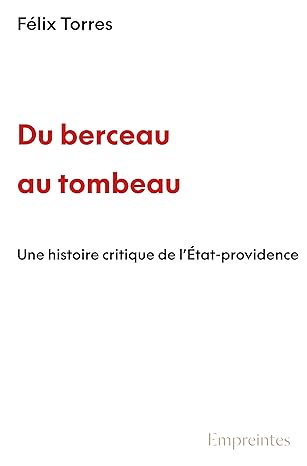The author engages in a critical analysis of the French social protection system, based on the welfare state model inherited from Beveridge’s “3 U”. He draws up a genealogy of the notions – both familiar and unknown – of social protection, social security, social state, welfare state, national solidarity, universal minimum income, “inactivity trap” … He analyzes the drifts of the system’s financing and taxation methods, which he compares to the mechanisms implemented in other major democracies. He recalls the successive alarms launched, since the 1970s, by politicians, such as Georges Pompidou and Jacques Chaban Delmas, by historians, such as Pierre Rosanvallon, or by jurists, such as Pierre Laroque. He observes the many attempts – sometimes utopian and often in vain – to “redefine solidarity”, “rethink rights”, “restore duties”, “improve redistribution”, “recover the untraceable budget balance” … He shows the complexity of legal constructions, fiscal adjustments, financial arrangements … to “fill the hole of the Secu”. He reveals that these excesses are both accelerated and inevitable, due to the political instability of the country and the “French taboo of capitalization”. He ironizes the typically French sense of the ideological controversy around the notions of social charges and contributions, insurance and levies, pensions and retirement… He welcomes the zeal of the technocrats who ensure the governance of the State-funded parity, in the absence of structural reforms.
The author recommends, following Erell Thevenon, to adopt a model of “State-Providence” located between the “universal and the individual”. The State refocuses on its “core mission” on a “solidarity base”. Private actors are guaranteed by contract against health and occupational risks, depending on their personal life choices. In any case, it seems that the rebalancing of the French system requires “more work” and “less aid”, as well as a reduction of “real inequalities” but also “undue advantages”.
Felix Torres (ENS, associate Professor of history, doctor of anthropology) is the author of numerous books on institutions and companies, where he demonstrates a vast economic and social culture and a rare mastery of historical and anthropological approaches.
Jean-Jacques Pluchart


